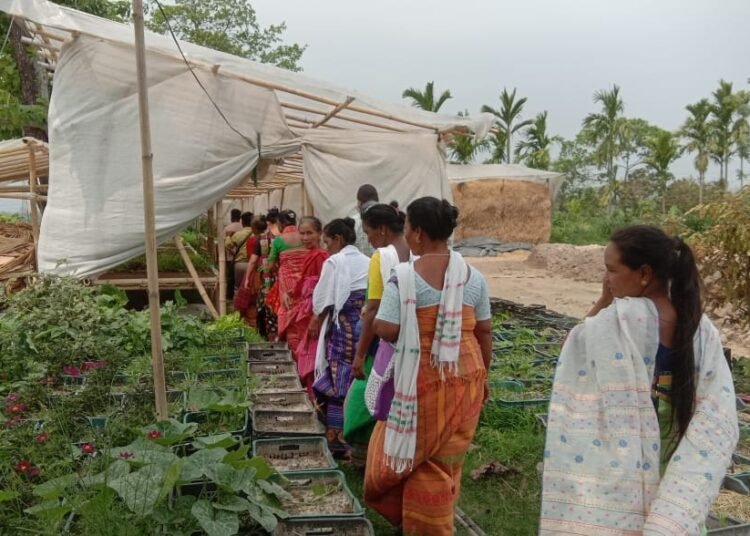Aaranyak, a biodiversity conservation organisation, facilitated training cum exposure visit for the human elephant conflict (HEC)-affected women of Badlapara village in Udalguri district to Pabhoi Greens at Biswanath Charilai of Assam.
The initiative has been designed with the aim of instilling a deeper understanding of how to establish and manage a homestead garden and nursery among the women.
The organisations said that women who haven’t got a chance to come out of their villages were encouraged to step out of their village homes for the first time.
On March 4, the women of the village had the opportunity to interact with the entrepreneur of Pabhoi Greens Neelam Dutta (Assam Gaurav Awardee, 2023) who is an excellent example of entrepreneurship in this field.
Homestead gardens are effective means for conservation of forest and biodiversity holding significant contribution in increasing forest cover, decreasing forest dependency and sustaining livelihoods.
The initiative was part of Aaranyak’s ongoing project “Community based integrated approach to facilitate Human Elephant Coexistence and Biodiversity Conservation” in Udalguri District, Assam under the aegis of UNDP-GEF Small Grant Programme and Ministry of Environment Forest & Climate Change (MoEFCC), implemented by TERI.
The HEC-affected women were elated to see hundreds of varieties of tomatoes, capsicum, chillies, eggplants, lettuces, herbs among other vegetables. They were introduced to concepts which were new to them such as Zero tillage farming, Paddy cum Fish cultivation, Tissue culture, Seed conservation methods and panchagavya, jivamrit, cow urine and neem based biopesticides.
Apart from farming practices they were also exposed to fisheries farming, paddy cultivation, paddy cum fish cultivation and vermicompost preparation.
Meanwhile, an exposure programme at the Chandrasing Rongpi Community Resource Centre (CRC) in Kohora, Karbi Anglong of Assam on April 6 was organised for foresters engaged in two Northeastern states.
The event was attended by 31 foresters Grade I, comprising 25 officials from Assam and 6 officials from Sikkim. They learned how to work with the forest-dependent Karbi Community in Kaziranga and Karbi Anglong landscapes.
The aim of the event was to provide an insight into community engagement, natural resource management and conservation, alternative sustainable livelihood (ASL), principle and approach of community based eco- culture tourism with reference to Kohora River Basin experiments.






























